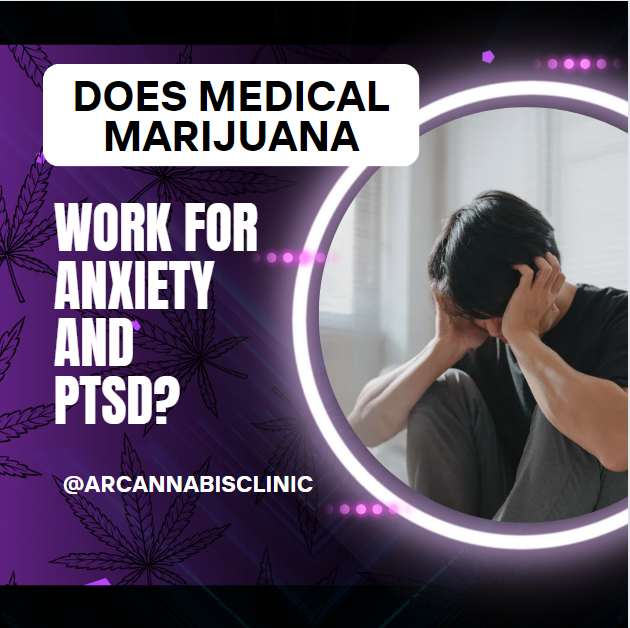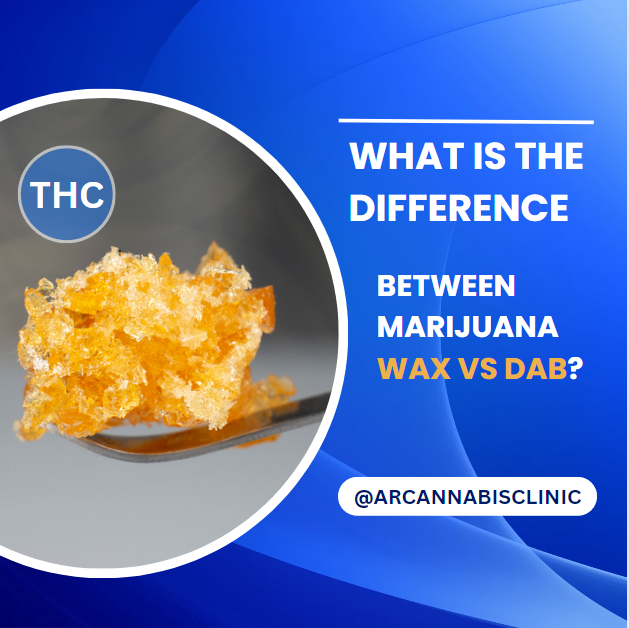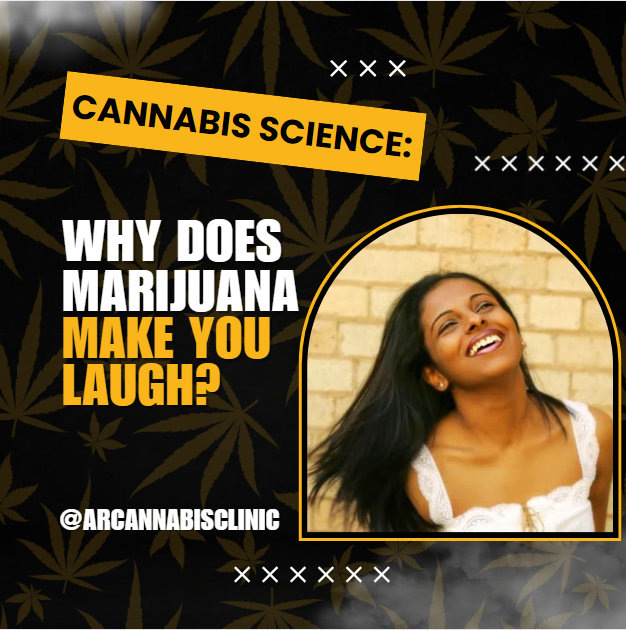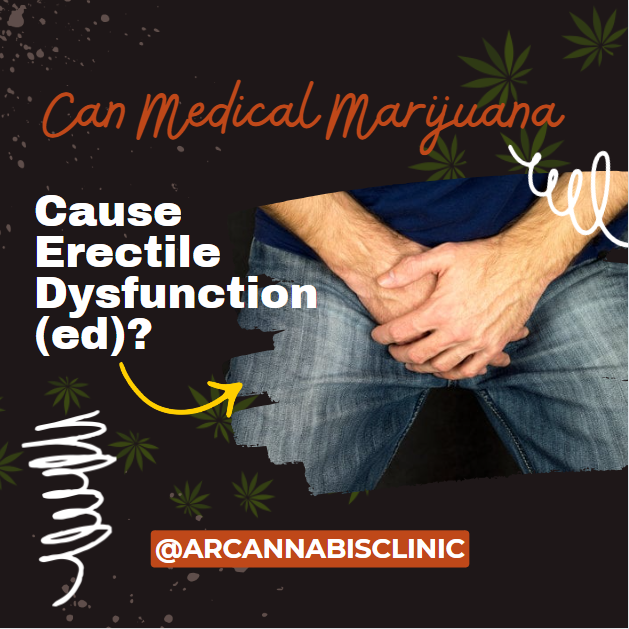Medical marijuana has gained popularity in recent years for its potential to alleviate various health issues. Although many celebrate its positive effects, concerns arise regarding its impact on sexual health, particularly erectile dysfunction (ED). This blog takes a closer look at whether the use of cannabis might cause ED, exploring the complexities surrounding this topic.
Table of Contents
Can cannabis cause erectile dysfunction?
What is the relationship between cannabis use and male sexual function?
How does cannabis affect sexual desire and performance?
Are there any studies linking cannabis use to erectile dysfunction?
Does cannabis have different effects on sexual health at different dosages?
Frequently Asked Questions (FAQ)
Conclusion
Can cannabis cause erectile dysfunction?
The question of whether cannabis can cause erectile dysfunction is a topic of ongoing debate among healthcare professionals and researchers. Understanding the potential risks and effects helps make informed decisions about its use.
Impact on Blood Flow: Cannabis use can affect blood vessels, which play an important role in erectile function. Reduced blood flow to the penis can lead to ED.
Interaction with Cannabinoid Receptors: The endocannabinoid system, influenced by cannabis, has receptors that regulate various functions, including sexual behavior. Alterations in this system might impact sexual performance.
High Blood Pressure and Heart Rate: Cannabis can cause temporary increases in heart rate and blood pressure. These changes may negatively affect male sexual function.
Psychological Factors: Anxiety disorders and other psychological factors linked to cannabis use can contribute to sexual dysfunction. Mental health plays a significant role in sexual satisfaction.
Drug Interactions: For those taking prescription medications, cannabis can have interactions that impact sexual health. Consulting a healthcare provider for medical advice on potential interactions is essential.
While these factors highlight potential risks, the relationship between cannabis and ED remains complex. According to a systematic review published in the Journal of Sexual Medicine, there’s not enough evidence to definitively conclude that cannabis causes ED. Research studies present mixed outcomes, indicating that more controlled studies are necessary.
For those concerned about the effects of cannabis on their sexual health, discussing treatment options with a healthcare professional ensures a well-rounded approach. Check out our guide on How to Obtain Your Marijuana Card: A Step-by-Step Guide for more information.
Key Takeaway: The relationship between cannabis use and erectile dysfunction is complex, with potential risks including reduced blood flow, psychological factors, and drug interactions.
Understanding the potential risks associated with cannabis use and its impact on sexual health is crucial for making informed decisions. For those concerned about these effects, discussing treatment options with a healthcare professional is advisable. ARCannabisClinic offers resources and expert guidance to help manage and navigate these concerns effectively.
For more detailed information about how cannabis might affect sexual health and to explore treatment options, check out our comprehensive guide on How to Obtain Your Marijuana Card: A Step-by-Step Guide.
What is the relationship between cannabis use and male sexual function?
Understanding the relationship between cannabis use and male sexual function is essential for those seeking to balance their health and sexual well-being. The effects of cannabis on sexual function can vary widely, depending on several factors.
Dosage Matters: The amount of cannabis consumed can significantly impact sexual experience. Lower doses might enhance sexual desire and enjoyment, while higher doses could lead to negative effects like reduced libido and erectile dysfunction.
Psychological Influences: Cannabis can induce a feeling of euphoria, helping to reduce anxiety and stress. However, excessive use might lead to anxiety disorders and other psychological problems that can negatively affect sexual performance.
Impact on Hormones: Some studies suggest that the active ingredient in cannabis, THC, may influence hormone levels, potentially affecting sperm count and sexual desire. The exact impact varies, necessitating further research.
Cardiovascular Effects: Cannabis can alter heart rate and blood pressure, which may affect the cardiovascular system. These changes can play a role in sexual health, particularly for those with underlying medical conditions.
CBD vs. THC: Different forms of cannabis, such as those high in CBD, might offer different effects on sexual function. CBD products are often considered to have fewer psychoactive effects and might be a good idea for those concerned about the impact of THC.
The relationship between cannabis and male sexual function is not entirely straightforward. According to an article from Cue Health, both positive and negative effects have been reported, making it a complex issue requiring careful consideration.
For those navigating these concerns, it’s beneficial to explore different treatment options and speak with healthcare professionals. At ARCannabisClinic, we can help you find the right balance and provide guidance tailored to your needs. Discover more about Finding the Right Medical Marijuana Dispensary for You to ensure quality products and support.
In summary, while cannabis can offer positive effects on sexual health for some, it’s essential to be aware of the potential risks and consult with a healthcare provider to find the best approach for you.
Key Takeaway: The relationship between cannabis use and male sexual function involves varying effects based on dosage, psychological impact, hormones, cardiovascular health, and the type of cannabis used.
For those looking to balance their health and sexual well-being, understanding the intricate effects of cannabis use is important. ARCannabisClinic offers personalized guidance to help you navigate these concerns, ensuring you find the right balance for your needs.
For more detailed information on how cannabis affects male sexual health, you can explore resources from Cue Health and ARCannabisClinic to get comprehensive insights and professional guidance.
How does cannabis affect sexual desire and performance?
The effects of cannabis on sexual desire and performance can be diverse, influenced by several factors. It’s important to understand these nuances to make informed choices about your health and wellness.
Endocannabinoid System: The endocannabinoid system plays a role in regulating sexual function. Cannabinoid receptors, present in the brain and reproductive organs, interact with the active ingredients in cannabis, potentially affecting sexual behavior and desire.
Blood Flow: Cannabis can impact blood flow, which is crucial for erectile function. While improved blood flow might enhance arousal, high doses could lead to issues like erectile dysfunction.
Hormonal Changes: THC and other cannabinoids might influence hormone levels. Changes in testosterone can affect sex drive, although the exact relationship remains complex and requires further research.
Psychological Factors: The psychoactive effects of cannabis, such as a feeling of euphoria, can lower anxiety and improve mood, potentially boosting sexual desire. However, overuse might lead to negative psychological effects, impacting sexual performance.
Age Group Variations: Different age groups might experience the effects of cannabis differently. Younger individuals might find it enhances their sexual experience, while older individuals might face more challenges, such as the risk of erectile dysfunction.
Frequency of Use: Regular cannabis users might develop tolerance, reducing the intensity of its effects on sexual desire and performance. Occasional use might offer more pronounced effects.
CBD vs. THC Products: CBD products are often used for their calming effects without the psychoactive high of THC. Some individuals might find CBD oil a better option for enhancing sexual health without the drawbacks of THC.
For those looking to explore the medicinal purposes of cannabis, it’s essential to weigh the potential risks and benefits. A Can Cannabis Be a Natural Treatment for Erectile Dysfunction? suggests that cannabis might offer some benefits, but more research is needed.
At ARCannabisClinic, we strive to provide comprehensive medical advice and support. Learn more about how medical marijuana can help with cancer treatment by visiting our guide on Exploring the Benefits of Marijuana in Cancer Treatment.
In conclusion, while cannabis has the potential to enhance sexual desire and performance for some, it’s vital to consider individual responses and consult with healthcare professionals to find the best approach for you.
Key Takeaway: Cannabis influences sexual desire and performance through various physiological and psychological mechanisms, making individual responses highly variable.
For those considering cannabis for sexual health, understanding its diverse effects is crucial. ARCannabisClinic offers tailored medical advice and resources to help individuals navigate these complexities. From hormonal influences to psychological impacts, our experts can guide you in making informed decisions.
For more in-depth information on how cannabis can affect sexual health, consult with healthcare professionals at ARCannabisClinic. Explore our guides and medical resources to help you make the best choices for your wellness journey.
Are there any studies linking cannabis use to erectile dysfunction?
It’s natural to wonder whether there’s a connection between cannabis use and erectile dysfunction (ED). Research in this area is ongoing, with various studies offering different perspectives.
Some studies suggest that cannabis might influence erectile function due to its impact on the cardiovascular system. Elevated heart rate and changes in blood pressure could influence blood flow to the penis, a crucial factor for maintaining an erection. However, these findings aren’t conclusive, and more research is required.
The Does Cannabis Use Cause ED? article highlights that while some users report ED symptoms, others find cannabis enhances their sexual experience. This variability underscores the complex relationship between cannabis and sexual health.
Clinical studies, including those published in the Journal of Sexual Medicine, explore cannabis’s psychoactive effects. THC, the primary active ingredient, can sometimes impair short-term memory and concentration, which might negatively impact sexual performance. However, THC’s ability to reduce anxiety can positively affect sexual desire.
Another critical aspect is the frequency of use. Regular cannabis users may develop tolerance, potentially reducing the drug’s effectiveness. On the other hand, occasional users might experience more pronounced effects, whether positive or negative.
It’s also worth noting the differences between CBD and THC products. CBD, known for its calming effects, might offer benefits without the psychoactive high of THC. Some individuals may prefer CBD oil for its potential positive effects on sexual health.
Age group variations add another layer of complexity. Younger individuals might experience enhanced sexual function, while older adults might face more risks, including ED.
For those considering the use of cannabis for sexual health, understanding its diverse effects and potential risks is crucial. At ARCannabisClinic, we provide expert guidance tailored to your unique needs. Win a Free Medical Marijuana Card Consultation: Enter Now! to explore how medical cannabis can fit into your treatment plan.
In conclusion, while there is still much to learn about the relationship between cannabis and erectile dysfunction, staying informed and consulting healthcare professionals can help you make the best decisions for your health and well-being.
Key Takeaway: While research on cannabis and erectile dysfunction is still developing, understanding the diverse effects and consulting healthcare professionals can guide better health decisions.
For individuals exploring the impact of cannabis on sexual health, ARCannabisClinic offers personalized advice to help navigate potential benefits and risks. Our expert guidance ensures you make informed decisions tailored to your unique needs.
For more detailed information on the link between cannabis and erectile dysfunction, explore articles like those in the Journal of Sexual Medicine and consult healthcare professionals for personalized advice.
Does cannabis have different effects on sexual health at different dosages?
When it comes to cannabis and sexual health, dosage plays a significant role. The effects of cannabis can vary widely depending on how much you consume and how often.
At lower doses, many people report enhanced sexual pleasure and increased sexual desire. This could be due to the reduction in anxiety and the feeling of euphoria that cannabis can induce. Some studies indicate that small amounts might improve blood flow and help with relaxation, contributing to a more satisfactory orgasm and overall better sexual experience.
However, higher doses can have the opposite effect. Consuming too much cannabis may lead to negative side effects like impaired short-term memory, decreased concentration, and even anxiety, which can all negatively impact sexual performance. In some cases, high doses might also cause a drop in sex drive and erectile function. Therefore, it’s important to find the right balance that works for you.
Interestingly, the type of cannabis product you use also matters. For example, CBD products, which are non-psychoactive, might offer benefits without the high associated with THC. Some individuals prefer CBD oil for its calming effects, which can positively influence sexual health without the risk of psychoactive side effects.
It’s also worth considering the method of consumption. Smoking, vaping, edibles, and tinctures all deliver cannabis in different ways, which can affect how quickly and intensely you feel its effects. This can play a role in your overall sexual satisfaction and performance.
For those navigating the complexities of cannabis dosages and their impact on sexual health, consulting healthcare professionals can be a good idea. At ARCannabisClinic, we offer personalized treatment plans and expert medical advice to help you find the right dosage and type of cannabis that suits your needs. Affordable Access to Medical Marijuana: Learn About Our No-Interest Financing to explore how we can support your journey.
In conclusion, while cannabis can have different effects on sexual health depending on the dosage, understanding your body’s reaction and consulting healthcare providers will help you make informed decisions.
Key Takeaway: The effects of cannabis on sexual health can vary with dosage. Lower doses might enhance sexual pleasure, while higher doses may have negative impacts. Consulting healthcare professionals is key to finding the right balance.
For more insights into how cannabis can impact your sex life, check out the What marijuana does to your sex life article. For personalized advice, ARCannabisClinic is here to help you navigate potential benefits and risks.
Key Takeaway: The effects of cannabis on sexual health can vary with dosage. Lower doses might enhance sexual pleasure, while higher doses may have negative impacts. Consulting healthcare professionals is key to finding the right balance.
For people looking to understand the intricate relationship between cannabis and sexual health, ARCannabisClinic offers personalized treatment plans and expert advice. Exploring the right dosage and type of cannabis can help enhance sexual pleasure while minimizing potential negative effects.
For more detailed information on how cannabis affects sexual health and to explore personalized treatment plans, visit ARCannabisClinic. Learn more about the benefits and risks to make an informed decision.
Frequently Asked Questions (FAQ)
Can medical marijuana use lead to erectile dysfunction (ED)?
Medical marijuana use may lead to erectile dysfunction due to potential negative effects on blood flow, cannabinoid receptors, and the endocannabinoid system, impacting sexual performance, sexual health, and male sexual function. Consult healthcare professionals for medical advice.
How does the active ingredient in cannabis affect erectile function?
The active ingredient in cannabis, THC, may impact erectile function by affecting blood flow, cannabinoid receptors, and the endocannabinoid system, potentially leading to sexual dysfunction and reduced sexual performance. Consult healthcare professionals for tailored medical advice.
What role do cannabinoid receptors play in sexual health?
Cannabinoid receptors influence sexual health by regulating blood flow, sexual desire, and erectile function through the endocannabinoid system, affecting sexual performance and potentially mitigating sexual dysfunction, as studied in various clinical studies and research on cannabis users.
Can the use of marijuana have a negative impact on sexual performance?
Yes, the use of marijuana can have a negative impact on sexual performance by affecting blood flow, erectile function, and sexual desire, particularly at higher doses, as indicated in various clinical studies and research on cannabis users.
Is there a link between high blood pressure and erectile dysfunction in cannabis users?
Yes, high blood pressure can negatively affect erectile function in cannabis users by reducing blood flow to the penis, impacting sexual performance and contributing to erectile dysfunction, as observed in various clinical studies and research on medical conditions.
How does the endocannabinoid system influence sexual desire?
The endocannabinoid system influences sexual desire by regulating neurotransmitters and blood flow, impacting cannabinoid receptors that affect sexual arousal, performance, and overall sexual health, as observed in various research studies on cannabis users and medical marijuana.
Can the negative effect of cannabis use on blood flow contribute to ED?
Yes, the negative effect of cannabis use on blood flow can contribute to erectile dysfunction (ED) by impairing blood vessel function and reducing blood flow to the penis, impacting male sexual function and overall sexual health.
Are there any drug interactions between medical marijuana and ED medications?
Yes, medical marijuana may interact with ED medications, potentially affecting blood flow and blood pressure; consult healthcare professionals for medical advice on potential risks and drug interactions specific to your health conditions and treatment plans.
What are the potential risks of using cannabis for sexual problems?
Potential risks of using cannabis for sexual problems include negative impact on blood flow, erectile function, sperm count, and short-term memory. Higher doses may cause anxiety, drug interactions, and cardiovascular issues, affecting overall sexual health and satisfaction.
Can medical cannabis have a positive effect on male sexual function?
Medical cannabis may positively affect male sexual function by improving blood flow, reducing anxiety, and enhancing sexual desire. However, higher doses may cause negative effects like erectile dysfunction, requiring medical advice from healthcare professionals for safe use.
How might the frequency of cannabis use affect sexual activity?
Frequent cannabis use may improve sexual desire and reduce anxiety but can negatively impact erectile function and lower sperm count, potentially affecting overall sexual health. Consult healthcare professionals for personalized advice on cannabis use and sexual activity.
Is there a relationship between anxiety disorders and ED in marijuana users?
Yes, anxiety disorders can affect erectile dysfunction in marijuana users due to the impact on blood flow, cannabinoid receptors, and the endocannabinoid system, potentially influencing overall sexual performance and sexual health.
What does the Journal of Sexual Medicine say about marijuana and erectile dysfunction?
The Journal of Sexual Medicine reports that the use of marijuana can have a negative impact on erectile function, potentially affecting sexual performance and sexual health due to its influence on blood flow and the endocannabinoid system.
Can high doses of cannabis impact sexual satisfaction?
High doses of cannabis can negatively impact sexual satisfaction by affecting blood flow, erectile function, and the endocannabinoid system, leading to potential sexual dysfunction and reduced sexual performance in cannabis users.
Are there any clinical studies on the effects of cannabis on sexual function?
Yes, clinical studies have explored cannabis’s effects on sexual function, showing mixed results regarding sexual desire, erectile function, and overall sexual satisfaction, influenced by factors like dosage, frequency of use, and individual differences among cannabis users.
How does the use of marijuana for medicinal purposes affect sperm count?
The use of marijuana for medicinal purposes can negatively impact sperm count by affecting the endocannabinoid system, altering cannabinoid receptors, and influencing blood flow, which may lead to reduced sperm production and potential reproductive health issues.
Can the psychoactive effect of marijuana influence sexual behavior?
Yes, the psychoactive effect of marijuana can influence sexual behavior by affecting the endocannabinoid system, altering sexual desire, and impacting blood flow, which may lead to changes in sexual performance and overall sexual experience for cannabis users.
Is there enough evidence to suggest a link between cannabis use and ED?
There is not enough conclusive evidence to suggest a strong link between cannabis use and erectile dysfunction (ED); however, some research indicates potential effects on blood flow and sexual function, meriting further clinical studies and medical advice.
How might different forms of cannabis affect sexual performance?
Different forms of cannabis affect sexual performance through their impact on blood flow, cannabinoid receptors, and the endocannabinoid system, sometimes enhancing sexual experience and function, but may also pose potential risks such as reduced sperm count and psychological factors.
What are the potential side effects of using marijuana on sexual health?
Using marijuana can impact sexual health by affecting blood flow, cannabinoid receptors, and sexual desire, potentially leading to erectile dysfunction, reduced sperm count, and psychological factors, while higher doses may increase short-term risks to sexual performance.
How does cannabis sativa compare to other medicinal plants in treating sexual dysfunction?
Cannabis sativa, by activating cannabinoid receptors and improving blood flow, may enhance sexual performance and sexual satisfaction, unlike other medicinal plants, but potential risks include reduced sperm count and negative impact on sexual health.
Can healthcare professionals provide medical advice on cannabis use for ED?
Yes, healthcare professionals at ARCannabisClinic can provide medical advice on cannabis use for erectile dysfunction, considering factors like blood flow, sexual performance, potential risks, and drug interactions to create personalized treatment options.
What are the systematic review findings on cannabis and sexual dysfunction?
Systematic review findings suggest cannabis can impact sexual dysfunction through cannabinoid receptors, affecting blood flow, sexual performance, and sexual desire. However, potential risks like drug interactions and negative effects on sperm count and erectile function necessitate careful consideration and medical advice.
Is there a risk of ED associated with the recreational use of cannabis?
Yes, recreational use of cannabis can pose a risk of ED by affecting blood flow, cannabinoid receptors, and sexual function, potentially leading to negative impacts on erectile function and overall sexual health.
How can the feeling of euphoria from marijuana impact sexual desire?
The feeling of euphoria from marijuana can enhance sexual desire by interacting with cannabinoid receptors in the endocannabinoid system, potentially increasing sex drive and improving the overall sexual experience for cannabis users.
What role does the cardiovascular system play in marijuana-induced ED?
The cardiovascular system affects marijuana-induced ED by altering blood flow and heart rate, which can negatively impact erectile function and sexual performance, especially in individuals with high blood pressure or other cardiovascular risk factors.
Are there any recent years research studies on marijuana and sexual satisfaction?
Yes, recent years have seen research studies examining marijuana’s effects on sexual satisfaction, noting both positive effects and potential risks, including impacts on sexual desire, performance, and overall sexual health among cannabis users in the United States.
Can prescription medications for ED interact with CBD products?
Yes, prescription medications for ED can interact with CBD products, potentially leading to adverse effects on sexual health, erectile function, and overall cardiovascular system. Always seek medical advice from healthcare professionals before combining treatments.
How might age group influence the relationship between cannabis use and ED?
Age group influences the relationship between cannabis use and ED as older individuals with existing health conditions like high blood pressure and cardiovascular issues may experience more severe negative effects on erectile function compared to younger cannabis users.
Can high doses of cannabis negatively affect sexual intercourse?
Yes, high doses of cannabis can negatively affect sexual intercourse by impairing erectile function, reducing sexual desire, and causing issues with blood flow and sperm count, potentially impacting overall sexual performance and satisfaction.
What are the treatment options for ED in cannabis users?
Treatment options for ED in cannabis users include lifestyle changes, prescription ED medications, reducing cannabis use, and exploring alternatives like CBD products. Consulting a healthcare provider for personalized medical advice is recommended to address underlying health issues and potential drug interactions.
Is there a good idea to use CBD oil for improving sex drive?
CBD oil might improve sex drive by enhancing blood flow and reducing anxiety, but consulting a healthcare provider for medical advice is recommended to understand potential risks, drug interactions, and suitability for your specific health conditions.
Can the use of medical marijuana improve quality of life for individuals with ED?
The use of medical marijuana might improve quality of life for individuals with ED by enhancing blood flow and reducing anxiety, but consultation with a healthcare provider is necessary to understand potential risks, drug interactions, and individual suitability.
How do psychological factors contribute to the effects of cannabis on sexual performance?
Psychological factors like anxiety, stress, and relationship problems can negatively impact sexual performance when using cannabis, potentially affecting sexual desire, erectile function, and overall sexual satisfaction, highlighting the complex issue of cannabis’s effects on sexual health.
Can the use of marijuana lead to a satisfactory orgasm?
Cannabis use may positively affect sexual experience and orgasm by enhancing sexual desire and blood flow, but individual responses vary, and potential risks like erectile dysfunction, anxiety, and drug interactions should be considered.
What is the role of healthcare provider in managing ED for cannabis users?
Healthcare providers assess the effects of cannabis on erectile dysfunction, manage potential risks like blood flow issues, drug interactions, and provide tailored treatment plans to improve sexual performance and overall sexual health for cannabis users.
Is there a link between marijuana use and short-term memory affecting sexual experience?
Yes, marijuana use can impact short-term memory, which may negatively affect sexual experience by reducing sexual performance and sexual satisfaction among cannabis users in the United States.
Can heart rate changes due to cannabis use impact erectile function?
Yes, heart rate changes due to cannabis use can impact erectile function by affecting blood flow and blood vessels, potentially leading to sexual dysfunction and negative effects on sexual performance and overall male sexual health.
Are there any controlled study of sexual function and cannabis use?
Yes, there are controlled studies on the effects of cannabis use on sexual function, examining cannabinoid receptors, blood flow, sexual performance, and potential risks such as erectile dysfunction and negative impacts on sexual health and male sexual function.
Can the drug administration of weed’s effect on sexual health be regulated?
Yes, regulating the drug administration of weed’s effect on sexual health is possible through controlled studies, healthcare provider guidance, monitoring CBD products, evaluating blood flow, and understanding interactions with existing medical conditions and prescription medications.
What are the potential interactions between medicinal cannabis and other drugs used for sexual problems?
Medicinal cannabis may interact with drugs affecting erectile function, blood vessels, and heart rate, potentially leading to altered blood flow, increased anxiety disorders, and negative impacts on sexual performance. Always seek medical advice for potential drug interactions.
How might the use of marijuana in the United States affect treatment plans for ED?
The use of marijuana in the United States may affect ED treatment plans by altering blood flow, interacting with ED medications, and impacting the endocannabinoid system, potentially leading to either positive or negative effects on erectile function and sexual health.
Can the use of marijuana for recreational purposes lead to complex issues in sexual health?
Yes, recreational marijuana use may lead to complex sexual health issues, including erectile dysfunction, altered blood flow, and potential negative effects on sexual performance, desire, and satisfaction, especially when used in high doses or combined with other risk factors.
Is there a connection between drug abuse and sexual dysfunction related to cannabis use?
Yes, drug abuse of cannabis may lead to sexual dysfunction, including erectile dysfunction, negative impact on sexual desire, and altered blood flow, particularly in cases involving high doses or prolonged use, according to various research studies.
Conclusion
ARCannabisClinic is dedicated to providing patients with expert guidance and compassionate care through personalized medical marijuana treatment plans. As the largest network of marijuana doctors in the nation, they help patients obtain medical marijuana cards and offer consultations on mental health disorders. Their MMJ Therapy Visit provides tailored advice on strains, ratios, and dosages. For more information on how medical cannabis can benefit you, visit ARCannabisClinic and explore their personalized therapy options.
CBD Oil Manufacturer UK
CBD Oil
CBD Skin Balm
CBD Massage Oil
CBD Roll-on
CBD Breathe Balm
CBD Gift Set
CBD Shop Birmingham
CBD Oil Benefits
Dutchy Labs CBD Oil for relief from anxiety, stress & sleep.
Dutchy Labs CBD Spring Sale is here! 30% off across complete range of CBD products until 16/04/2023.
*EXTENDED* January Sale – Happy New Year and an even Happier YOU! We have extended our 20% discount offer on all products until the 05/02/23
This summer get relief from constant sneezing, congestion & coughing with 20% OFF www.dutchylabs.com
Birmingham-based CBD brand Dutchy Labs is offering 25% off across their whole range of CBD products
Dutchy Labs will be exhibiting its premium organic CBD range of products at The CBD Show, London
The best brand of CBD Oil in 2023
How can you tell when CBD oil is good quality?
How to use cbd oil
Treat yourself to a CBD massage!




